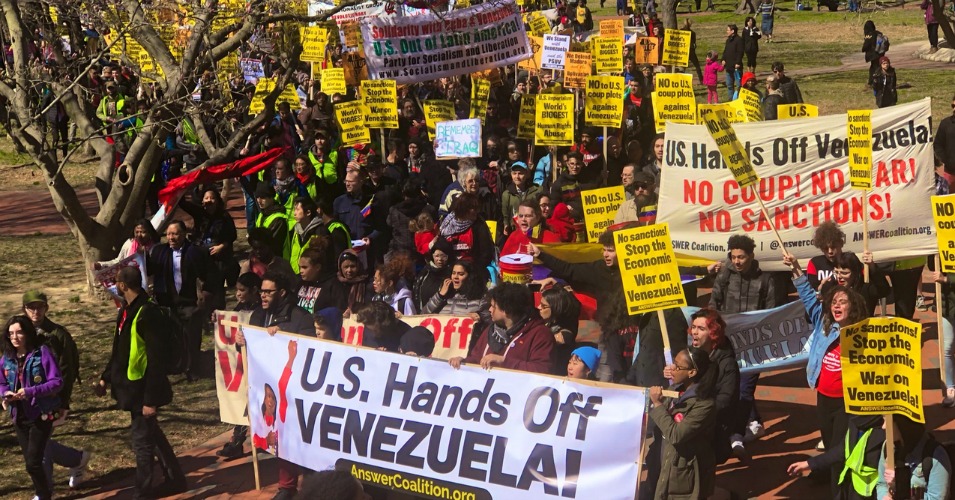
Adopted as part of regime-change operation, sanctions have killed at least 40,000 Venezuelans.
Economic coercive measures, commonly known as economic sanctions, are a means of coercive pressure through disruption of trade relations and economic isolation. The use of sanctions under international law is governed chiefly by Chapter VII of the United Nations Charter, providing that the Security Council may decide to enact a “complete or partial interruption of economic relations” in order to restore international peace and security.
Measures not authorized by the Security Council, or “unilateral coercive measures” (UCM), have become an increasingly common coercive tactic of the United States, which presently imposes sanctions on approximately one-third of the global population.
Since 2010, the United States has also been enforcing select secondary sanctions against international actors that maintain economic relations with sanctioned states. The adverse effects of these measures on civilian populations of targeted countries—“especially severe for vulnerable groups,” including “women and children”—have been repeatedly and unequivocally documented.
Issues surrounding the legality of UCM have largely centered around the question of compatibility with the United Nations Charter. One primary concern has been the claimed illegitimacy of sanction measures not authorized in multilateral fashion by the Security Council. Others alude to the problems raised by UCM in both the context of state sovereignty (principle of non-interference in the internal affairs of other states) and international humanitarian law (right to life, health and medical care set forth in the International Covenant on Civil and Political Rights and the International Covenant on Economic, Social and Cultural Rights).
The United Nations General Assembly has also voiced regular concerns about UCM. A resolution overwhelmingly passed 29 years in a row calling for the cessation of the United States’s “economic blockade” on Cuba is illustrative.
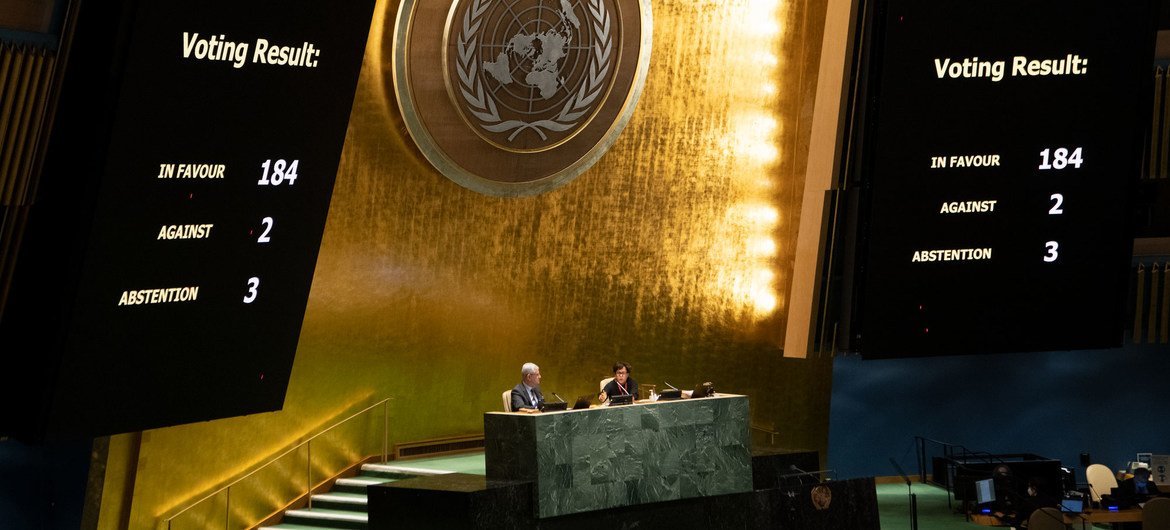
On February 13, 2020, the government of Venezuela submitted a referral to the International Criminal Court (ICC) requesting an investigation into another possible legal frailty of the United States UCM—namely, whether such measures can constitute crimes against humanity pursuant to Article 7 of the Rome Statute. As recourse to economic warfare ramps up further amidst an intensifying new Cold War, pressure mounts surrounding the Court’s eventual decision.
Case Background
Venezuela has a population of more than 28 million. Since the 1930s, it has been a significant oil-producing state and is considered to preside over the world’s largest oil reserves.
Under President Hugo Chávez (1998-2013), a new national constitution was adopted which provided for the use of national oil revenues to improve social conditions. The United States responded to this shift in policy with an attempted, but ultimately foiled, coup d’état in 2002. Despite hostile relations with the United States and a series of anti-terrorism and anti-drug trafficking-related sanctions, the Chávez social programs achieved impressive results in improving the standard of living for the Venezuelan population. Poverty and unemployment rates dropped markedly and education standards and literacy rates steadily increased.
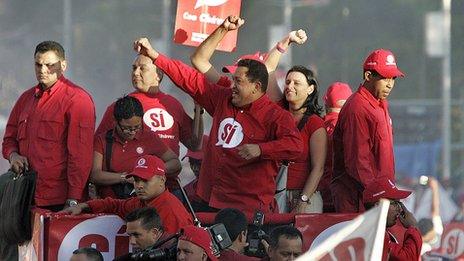
Following the death of President Chávez and the election of Nicolás Maduro, the United States intensified its economic coercion. In March 2015, President Barack Obama issued Executive Order 13692, declaring Venezuela an “unusual and extraordinary threat to the national security and foreign policy of the United States” and providing for the blocking of Venezuelan assets.
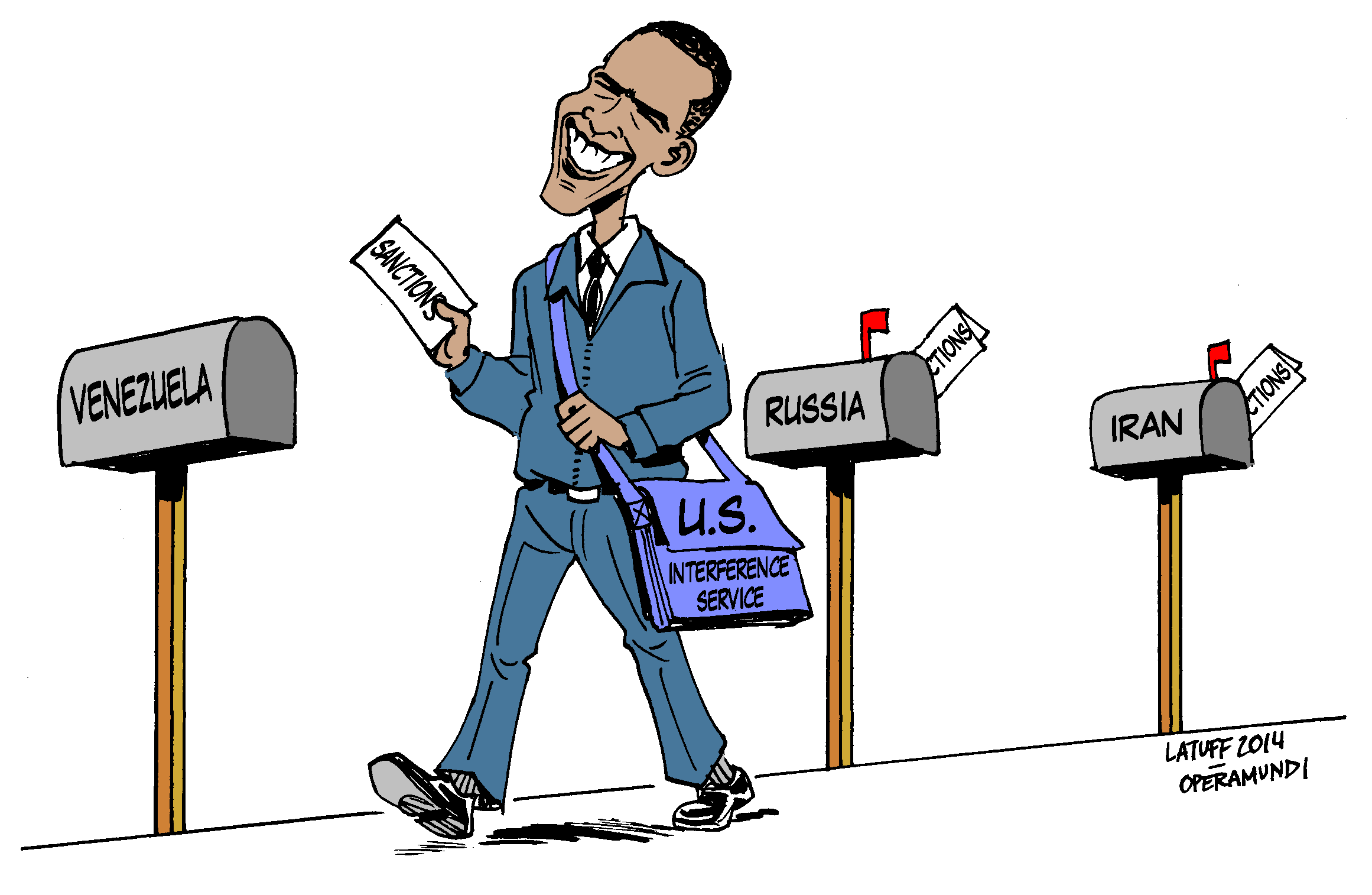
The Trump administration ramped up the financial pressure with Executive Order 13808 in August 2017, denying the Venezuelan government, including the state-owned oil company, PDVSA, access to United States financial markets. Executive Orders 13827 and 13835 followed in spring 2018, prohibiting transactions involving the Venezuelan government’s issuance of digital currency and transactions related to the purchase of Venezuelan debt, respectively.
President Trump issued Executive Order 13850 in November 2018 setting forth a framework to block the assets of, and restrict certain transactions with, any person deemed by the Treasury Department to be engaging in transactions with the Venezuelan government that advance its “corrupt purposes.” In January 2019, the United States, in a display of open contempt for democracy, ceased to recognize the government of President Maduro, instead acknowledging Juan Guaidó as interim President.
Strangulation of the Venezuelan economy escalated further in August 2019 with Executive Order 13884, freezing property interests of the Venezuelan government in the United States, prohibiting U.S. citizens from engaging in transactions with the Venezuelan government and authorizing financial sanctions and visa restrictions on non-U.S. citizens who assist or support the Venezuelan government.
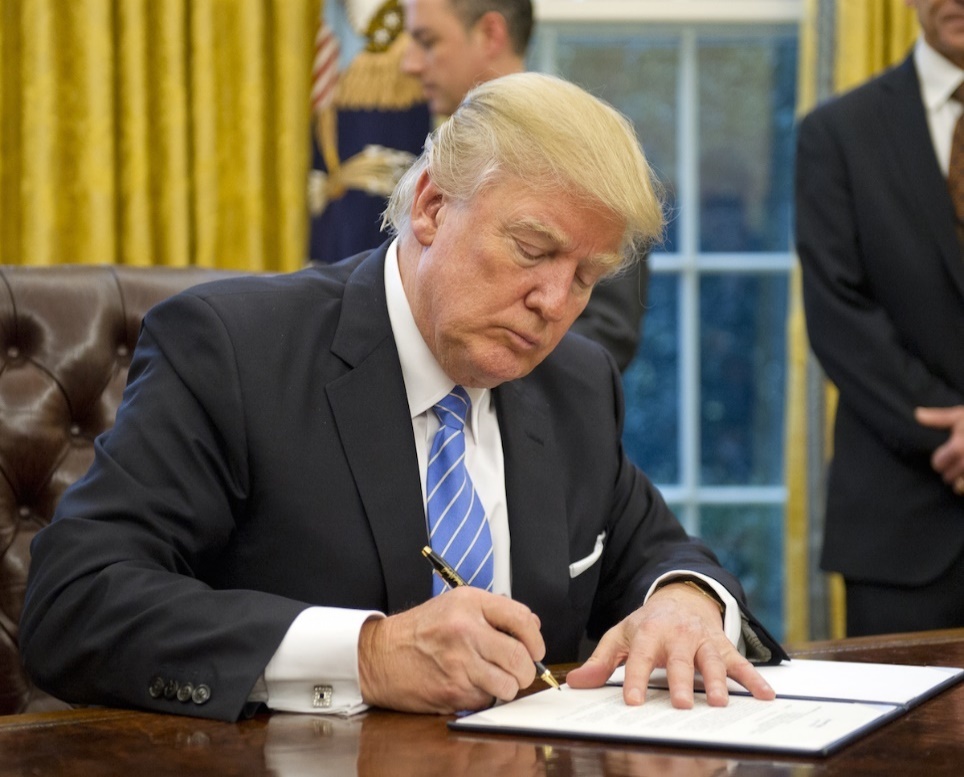
Effect of United States UCM
All of the above-enumerated measures were enacted unilaterally by the United States government and have had a catastrophic impact on the Venezuelan economy, which has in turn precipitated a humanitarian crisis for the Venezuelan population.
In February 2021, the United Nations Special Rapporteur on the Negative Impact of Unilateral Coercive Measures, Elena Douhan, released preliminary findings on the impact of United States UCM on the enjoyment of basic human rights in Venezuela. Ms. Douhan notes that, before the imposition of UCM, Venezuela was committing 76% of its national oil revenues to the advancement of social programs. As a result of the monumental UCM-related drop in oil revenue (e.g., from $42 billion in 2013 to just $4 billion in 2018), the government is now unable to commit even one percent to the social programs.
The loss of these resources has led to a “devastating impact on the whole population of Venezuela” with basic human rights directly affected. These include the:
- Right to food—more than 50% of food consumption has been impacted by United States UCM, which led to one-third of the Venezuelan population becoming acutely food insecure;
- Right to water—water-related services have been significantly disrupted by United States UCM such that the average Venezuelan household has access to running water for only a couple of hours sporadically throughout a given week;
- Right to health—access to quality healthcare has been significantly disrupted by United States UCM, resulting in extreme shortages of medical staff and equipment; maternal and infant mortality rates have increased, as well as mortality rates from various diseases; and
- Right to education—United States UCM have resulted in a massive decrease in government funding for education, frustrating the ability of schools to procure staff and basic necessities, including meals for students; the situation has been further exacerbated by regular electrical and internet outages.
The severely beleaguered financial condition of the Venezuelan government has also inhibited its ability to provide basic health services amid the Covid-19 pandemic. In addition to its unwillingness to unfreeze Venezuelan assets to enable the purchase of Covid vaccines, the United States has also declined to donate vaccinations to Venezuela, citing concerns over a lack of Venezuelan “transparency.”
Claim
The Venezuelan referral claims that United States UCM constitute crimes against humanity under Article 7 of the Rome Statute. Specifically, the claim asserts that the United States UCM represent a widespread or systematic attack directed against the civilian population of Venezuela; that this effect is known to the United States; and that these UCM manifest themselves in punishable acts enumerated in Article 7—in particular, murder (Art. 7(1)(a)), extermination (Art. 7(1)(b)), deportation (Art. 7(1)(d)), persecution (Art. 7(1)(h)), and other inhumane acts (Art. 7(1)(k)).
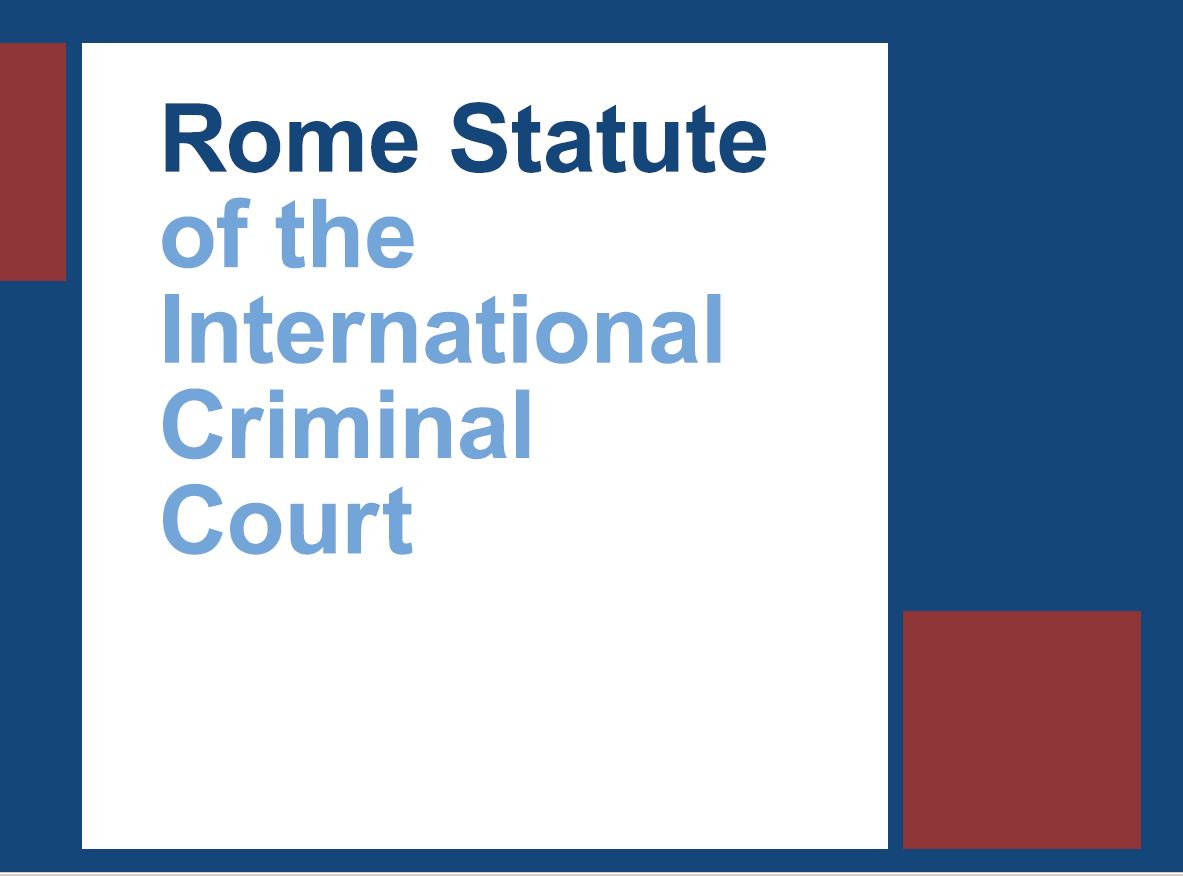
The referral is novel in multiple respects. First, UCM have not previously been challenged on grounds that they violate international criminal law. Claims abound that UCM are inconsistent with the United Nations Charter, with principles of state sovereignty and with international humanitarian law, but their possible criminality has not been investigated.
Second, the ICC has not previously investigated a case alleging crimes against humanity emanating from policies enacted in one state, but executed on the territory of another. The referral advances the argument that it is accepted in ICC case law that “non-state actors” can commit crimes against humanity even where they do not control the territory in which they are operating. As such, there is no principled reason why “states” cannot commit crimes against humanity in territory which they do not control—i.e., the United States can commit crimes against humanity on the territory of Venezuela.
Third, the referral also raises a jurisdictional oddity. While Article 12 of the Rome Statute clearly provides jurisdiction over qualifying crimes committed on the territory of a member state party, the question arises where precisely the alleged crimes against humanity flowing from United States UCM occur. The referral acknowledges that the actual decisions to impose the UCM in question occurred outside the territory of Venezuela, but argues that the clear intent of the decisions was to have effects within its territory. Thus, the question of whether the ICC can exercise territorial jurisdiction over actions by a non-Rome Statute member state directed against the territory of a Rome Statute member state must be addressed by the Court and further raises the stakes in connection with potential implications of the referral.
Assessment of Venezuela’s Challenge
In addition to raising serious international legal concerns under, inter alia, the United Nations Charter and international humanitarian law, UCM cause significant and well-documented suffering among innocent civilian populations and are ripe for investigation under international criminal law.
The Venezuelan referral advances sound arguments that United States UCM can constitute crimes against humanity. It appears unequivocal that the United States imposes these measures, which appear to satisfy the criteria set forth in Article 7 of the Rome Statute, knowing full well their effects on the Venezuelan population.
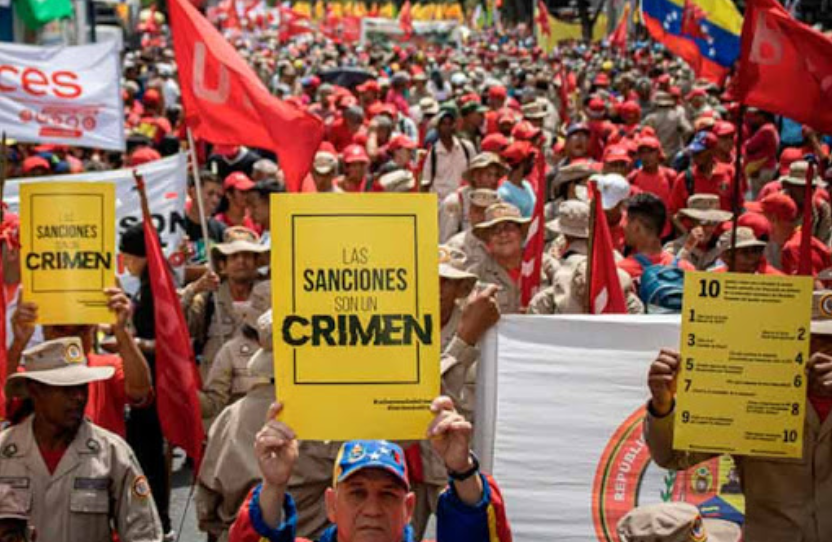
Despite calls for the investigation of others when politically expedient, the United States has hidden itself behind its non-party status to the Rome Statute to avoid investigation of its own actions and has a history of unprecedented hostility toward the ICC.
In 2002, the United States enacted the American Service-Members Protection Act “to protect United States military personnel and other elected and appointed officials…against criminal prosecution by an international criminal court to which the United States is not part.” The Act authorizes the president to use “all means necessary and appropriate”—including conceivably force—to bring about the release of United States personnel detained by the ICC.
In June 2020, President Trump issued Executive Order 13928, taking the extraordinary step of declaring the Court’s pending investigation into United States crimes in Afghanistan an “unusual and extraordinary threat to the national security and foreign policy of the United States” and authorizing the freezing of assets of ICC personnel and placement of restrictions on their ability to travel to the United States.
The ICC has displayed a distinct wariness of confrontation with the United States, giving rise to credible concerns surrounding its impartiality. Upon taking office in 2021, the new Chief Prosecutor, Karim Khan, immediately brought controversy and renewed doubts of credibility on the Court with his arbitrary decision to “deprioritize” inquiry into war crimes and crimes against humanity committed by United States military and intelligence personnel in Afghanistan under the Bush administration and to, instead, focus selectively on infractions of the Taliban.
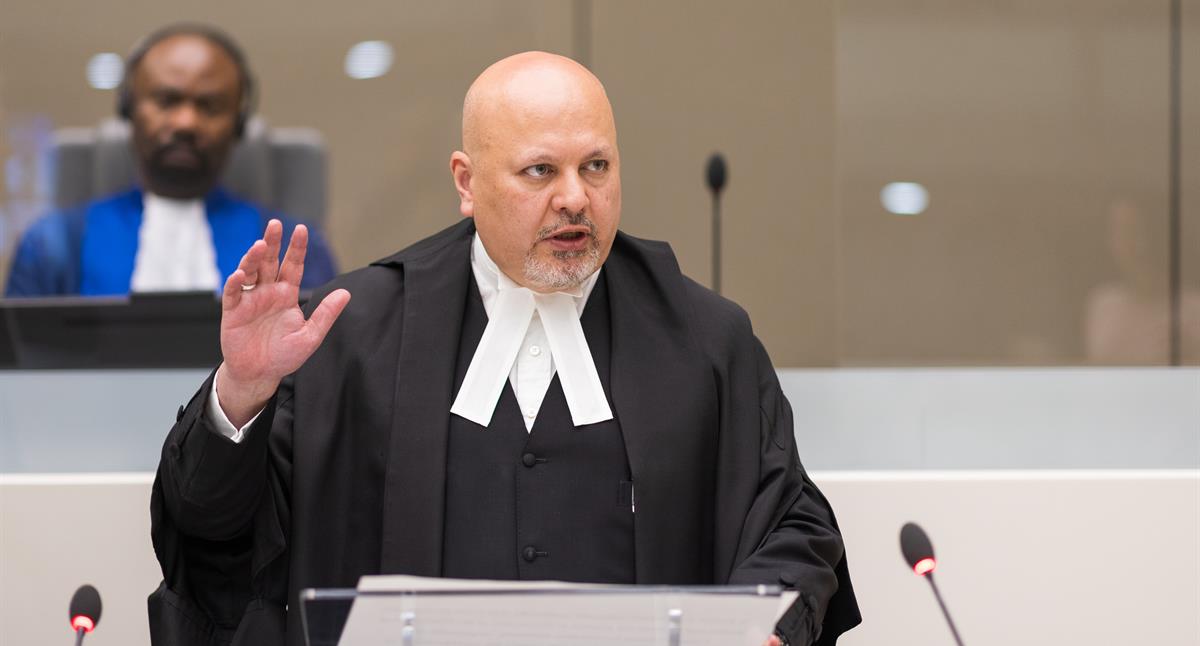
The Court may well be tempted to skirt Venezuela’s requested investigation of the United States on technical jurisdictional grounds, but yet another dismissal of a sound case against the United States, all the while vigorously launching a new probe into Russian crimes in Ukraine, could further tarnish the ICC’s already suspect reputation.
Though the referral has unsurprisingly received little coverage in the United States, the stakes are indeed high. A decision to exercise jurisdiction and to proceed with investigation would set an unwelcome precedent for the United States—even if the chances of U.S. leaders actually standing trial is all but non-existent.
An investigation, and ultimate finding, by the ICC would cast concrete doubt on already dubious United States UCM and could possibly prompt a United Nations General Assembly request for an advisory opinion from the International Court of Justice on the broader legality of UCM. At a time when its economic coercive tactics are coming to seriously jeopardize the global economy—and, accordingly, raise critical eyebrows around the world—the United States can ill afford an adverse ICC ruling. For the ICC, on the other hand, the referral presents an opportunity to show its courage and prove its impartial commitment to global justice.

CovertAction Magazine is made possible by subscriptions, orders and donations from readers like you.
Blow the Whistle on U.S. Imperialism
Click the whistle and donate
When you donate to CovertAction Magazine, you are supporting investigative journalism. Your contributions go directly to supporting the development, production, editing, and dissemination of the Magazine.
CovertAction Magazine does not receive corporate or government sponsorship. Yet, we hold a steadfast commitment to providing compensation for writers, editorial and technical support. Your support helps facilitate this compensation as well as increase the caliber of this work.
Please make a donation by clicking on the donate logo above and enter the amount and your credit or debit card information.
CovertAction Institute, Inc. (CAI) is a 501(c)(3) non-profit organization and your gift is tax-deductible for federal income purposes. CAI’s tax-exempt ID number is 87-2461683.
We sincerely thank you for your support.
Disclaimer: The contents of this article are the sole responsibility of the author(s). CovertAction Institute, Inc. (CAI), including its Board of Directors (BD), Editorial Board (EB), Advisory Board (AB), staff, volunteers and its projects (including CovertAction Magazine) are not responsible for any inaccurate or incorrect statement in this article. This article also does not necessarily represent the views the BD, the EB, the AB, staff, volunteers, or any members of its projects.
Differing viewpoints: CAM publishes articles with differing viewpoints in an effort to nurture vibrant debate and thoughtful critical analysis. Feel free to comment on the articles in the comment section and/or send your letters to the Editors, which we will publish in the Letters column.
Copyrighted Material: This web site may contain copyrighted material the use of which has not always been specifically authorized by the copyright owner. As a not-for-profit charitable organization incorporated in the State of New York, we are making such material available in an effort to advance the understanding of humanity’s problems and hopefully to help find solutions for those problems. We believe this constitutes a ‘fair use’ of any such copyrighted material as provided for in section 107 of the US Copyright Law. You can read more about ‘fair use’ and US Copyright Law at the Legal Information Institute of Cornell Law School.
Republishing: CovertAction Magazine (CAM) grants permission to cross-post CAM articles on not-for-profit community internet sites as long as the source is acknowledged together with a hyperlink to the original CovertAction Magazine article. Also, kindly let us know at info@CovertActionMagazine.com. For publication of CAM articles in print or other forms including commercial internet sites, contact: info@CovertActionMagazine.com.
By using this site, you agree to these terms above.
About the Author

Ryan Swan is a doctoral researcher at the Bonn International Centre for Conflict Studies in Germany.
He holds a J.D. from the UCLA School of Law and a Master’s in international relations and politics from Trinity Hall, Cambridge.
Ryan can be reached at swan2018@lawnet.ucla.edu.

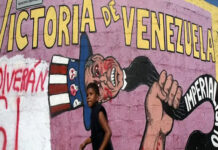


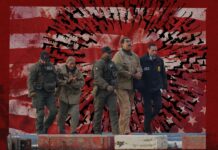
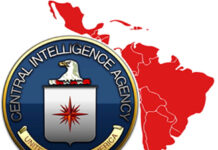
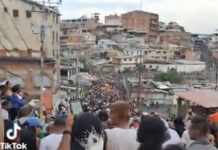
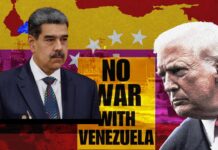
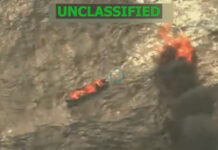


[…] CovertAction Magazine 11 April 2022 […]
[…] Venezuela Seeks Investigation by ICC Whether U.S. Sanctions Constitute Crimes Against Humanity, by R… […]
Yes, they are crimes.
[…] https://covertactionmagazine.com/2022/04/11/venezuela-seeks-investigation-by-international-criminal-… […]